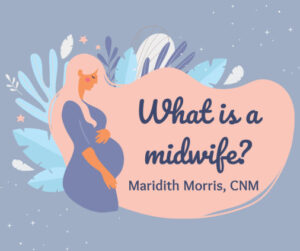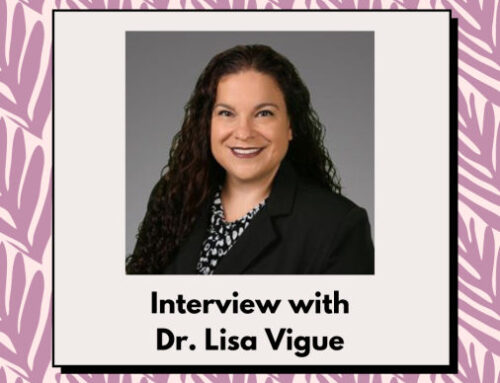 I’ve had a few questions from patients and their support people regarding what a midwife is and the role of a midwife in pregnancy and birth care. I’m hoping this FAQ will help answer those questions!
I’ve had a few questions from patients and their support people regarding what a midwife is and the role of a midwife in pregnancy and birth care. I’m hoping this FAQ will help answer those questions!
What is a Midwife?
A midwife is a healthcare professional that is trained to provide reproductive care throughout a woman’s lifetime and especially during pregnancy and birth.
Are There Different Types of Midwives?
There are a few different categories of midwives: nurse-midwives, certified professional midwives, and traditional midwives. Traditional midwives do not seek certification or formal education and learn through apprenticeship and self-study. They may work only with certain cultural groups or with the community at large.
Certified professional midwives may obtain certification through an apprenticeship or an accredited program, typically obtaining a certification or associate’s degree. CPMs typically work in the community and home birth setting. CPMs are not licensed in Iowa.
What is a Certified Nurse-Midwife?
The role of a nurse-midwife is to provide care during pregnancy, childbirth, and postpartum; sexual and reproductive care; gynecologic care; and family planning, including preconception care. Midwives also provide primary care from adolescence throughout the lifespan and care of healthy newborns to 28 days old. Nurse-midwives conduct exams, order diagnostic testing, and prescribe treatments. Care from nurse-midwives includes health promotion, disease prevention, risk assessment and management, and wellness education and counseling.
A Certified Nurse-Midwife first completes a nursing program and obtains certification as an RN. They then complete a specialized graduate-level education and pass a board certification exam to become an advanced registered nurse practitioner. Most nurse-midwives have a referring relationship with physicians. At OB-GYN and Associates, we have an advantage as a collaborative practice. When pregnancy or gynecologic complications arise, our nurse midwives collaborate with our physicians to solve problems. When needed, our unified practice facilitates a seamless transition of care from midwives to physicians.
I Thought Midwives Only did homebirth?
Homebirth is one of the biggest misconceptions! Midwives do not just deliver babies at home. Most Certified Nurse-midwives work in the hospital setting. The midwives at OBGYN Associates will be delivering at MercyOne Des Moines Medical Center. We are happy to support our patients desiring an unmedicated, low-intervention birth, but we strongly emphasize that you do not have to have an unmedicated birth to use midwifery care! We are partners in YOUR birth, and our goal is to help you be safe, supported, and empowered in your decisions.
We are accepting new patients! To schedule an appointment with OBGYN Associates, call us at 515-288-3287.
DISCLAIMER: All information on this website is provided for informational purposes only and is not intended to be construed as medical advice. OBGYN Associates shall not be liable for any errors or inaccuracies contained herein, or any actions taken in reliance thereon.

I’ve had a few questions from patients and their support people regarding what a midwife is and the role of a midwife in pregnancy and birth care. I’m hoping this FAQ will help answer those questions!
What is a Midwife?
A midwife is a healthcare professional that is trained to provide reproductive care throughout a woman’s lifetime and especially during pregnancy and birth.
Are There Different Types of Midwives?
There are a few different categories of midwives: nurse-midwives, certified professional midwives, and traditional midwives. Traditional midwives do not seek certification or formal education and learn through apprenticeship and self-study. They may work only with certain cultural groups or with the community at large.
Certified professional midwives may obtain certification through an apprenticeship or an accredited program, typically obtaining a certification or associate’s degree. CPMs typically work in the community and home birth setting. CPMs are not licensed in Iowa.
What is a Certified Nurse-Midwife?
The role of a nurse-midwife is to provide care during pregnancy, childbirth, and postpartum; sexual and reproductive care; gynecologic care; and family planning, including preconception care. Midwives also provide primary care from adolescence throughout the lifespan and care of healthy newborns to 28 days old. Nurse-midwives conduct exams, order diagnostic testing, and prescribe treatments. Care from nurse-midwives includes health promotion, disease prevention, risk assessment and management, and wellness education and counseling.
A Certified Nurse-Midwife first completes a nursing program and obtains certification as an RN. They then complete a specialized graduate-level education and pass a board certification exam to become an advanced registered nurse practitioner. Most nurse-midwives have a referring relationship with physicians. At OB-GYN and Associates, we have an advantage as a collaborative practice. When pregnancy or gynecologic complications arise, our nurse midwives collaborate with our physicians to solve problems. When needed, our unified practice facilitates a seamless transition of care from midwives to physicians.
I Thought Midwives Only did homebirth?
Homebirth is one of the biggest misconceptions! Midwives do not just deliver babies at home. Most Certified Nurse-midwives work in the hospital setting. The midwives at OBGYN Associates will be delivering at MercyOne Des Moines Medical Center. We are happy to support our patients desiring an unmedicated, low-intervention birth, but we strongly emphasize that you do not have to have an unmedicated birth to use midwifery care! We are partners in YOUR birth, and our goal is to help you be safe, supported, and empowered in your decisions.
We are accepting new patients! To schedule an appointment with OBGYN Associates, call us at 515-288-3287.
DISCLAIMER: All information on this website is provided for informational purposes only and is not intended to be construed as medical advice. OBGYN Associates shall not be liable for any errors or inaccuracies contained herein, or any actions taken in reliance thereon.





Leave A Comment